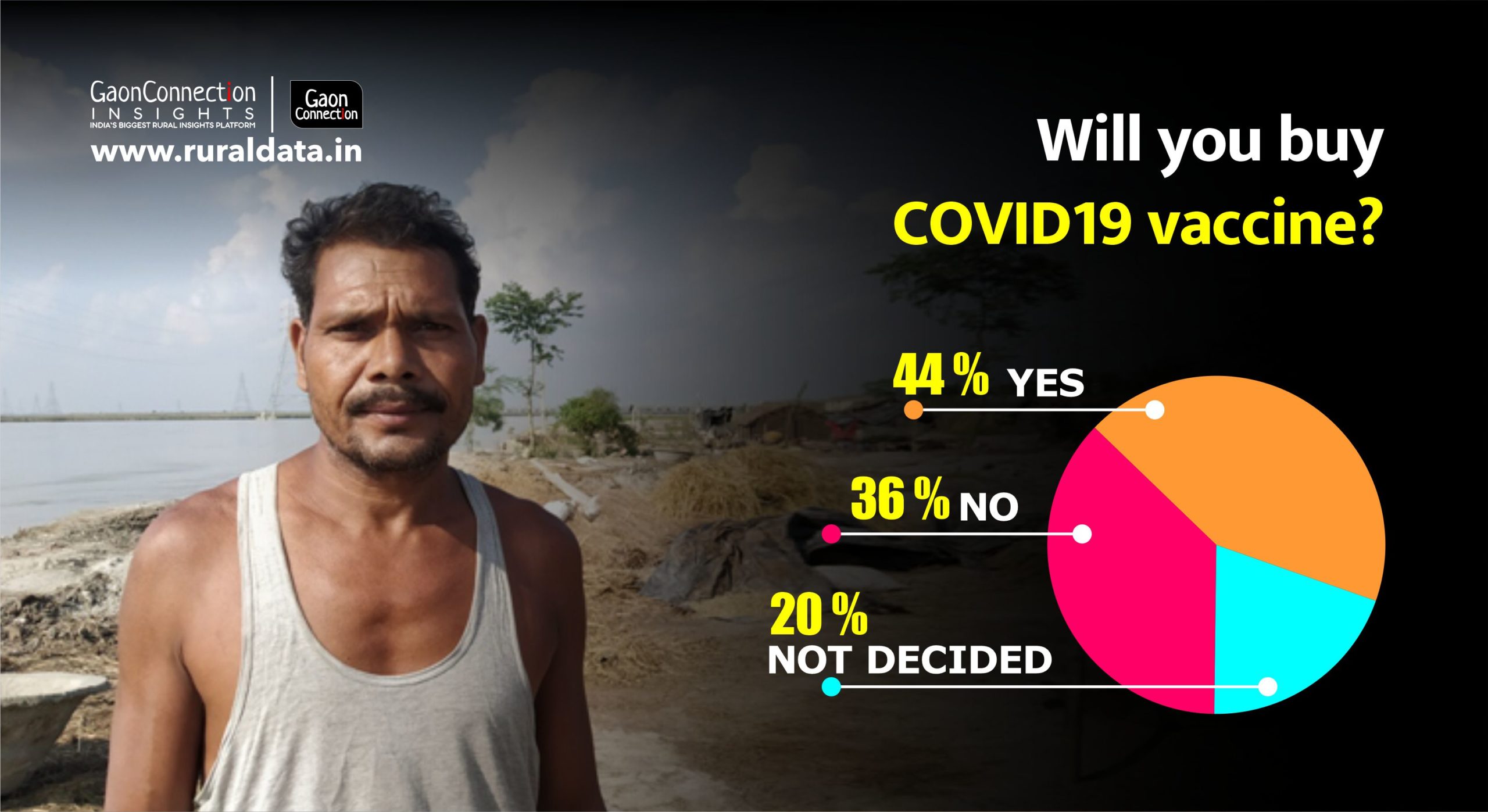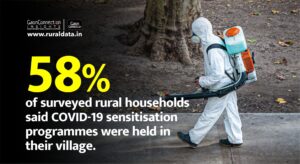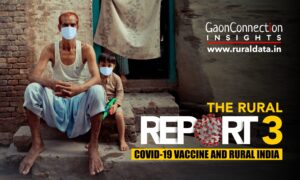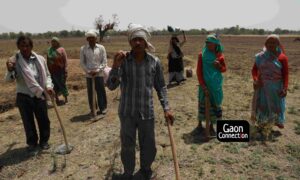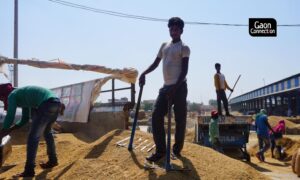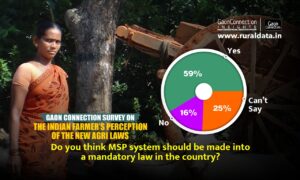Almost every eighth resident of rural India is aware that the corona vaccine should be out shortly. Slightly less than half (44%) of the rural households are willing to pay and get the vaccine. But, another 36 per cent do not want to pay for it. Two-third of those who are willing to pay for the vaccine want its price not to exceed Rs 500. Another one-fourth would like to pay between Rs 500 and Rs 1,000 for two doses of COVID-19 vaccine. Whereas, around eight per cent are willing to pay between Rs 1,000 and Rs 2,000 for two doses of the vaccine.
These are among the key findings of the first survey of its kind on the perceptions of rural Indians around the coronavirus vaccine by Gaon Connection Insights, the data and insights arm of India’s biggest rural media platform Gaon Connection. The survey, released as ‘The Rural Report 3: COVID-19 Vaccine and Rural India’ and available in full for a free download on www.ruraldata.in.
The face-to-face survey, conducted between December 1 and December 10, was carried out by Gaon Connection surveyors among 6,040 rural respondents across 60 districts in 16 states and one union territory. The selection of states, covering all regions of the country, was based on the prevalence of COVID-19 as per the COVID data of the Union ministry of health and family welfare, Government of India.
The survey had a margin of error of 5 per cent and a 95 per cent confidence level.
Neeraj Pandey, a resident of Rampur in Jaunpur district of Uttar Pradesh, is eagerly awaiting the COVID-19 vaccine. On August 26, his uncle died due to coronavirus disease at a Mumbai hospital. “I am just hoping for the vaccine against the corona to come out soon,” he told Gaon Connection, “I heard that the government would charge Rs 1,000 for a vaccine, but we spent many times more than that on medicines and hospital bills. Vaccine is required and we will arrange the money for it,” he added.
A large number of rural respondents to the Gaon Connection survey said the vaccine should not cost more than Rs 500, as affordability was an issue in rural India.
Prem Kumar, a resident of Bharua in Hamirpur district of Uttar Pradesh, who used to work at a call centre in Delhi, told Gaon Connection, “I am unemployed for the last five months. Both my brother and I lost our jobs in May during the lockdown.” Kumar’s family of six, including his elderly parents, don’t own any agricultural land and have no other source of income.
“It feels good to daily read about the development of the corona vaccine in the newspaper but the other day somebody said the vaccine will cost two thousand rupees and someone was telling it to be between five hundred and a thousand rupees,” said Kumar. “The government should provide it for free. If the vaccine would cost so much, it would be difficult for people like us to vaccinate all our family members given the paucity of money,” he added.
As per the Gaon Connection survey, almost 40 per cent households in high prevalence states, 51 per cent households in medium prevalence states and 42 per cent households in low prevalence states expressed their willingness to pay for the COVID-19 vaccine.
Similarly, almost 47 per cent households in East-Northeast zone, 37 per cent households in west zone, 51 per cent in north zone and 33 per cent households in south zone expressed their willingness to pay for the COVID-19 vaccine.
Analysis by ration card status of the households reflects 53 per cent of APL, 37 per cent of BPL and 33 per cent of AAY households said they would like to pay and get the COVID-19 vaccine.
Zone-wise analysis of Gaon Connection survey data indicates less than one-fifth of households in the north zone would like to pay more than Rs 500 for two doses of COVID vaccine. But a higher proportion of households in the East-Northeast and South zones of India were willing to pay more than Rs 500 for two doses of COVID vaccine.
In the Gaon Connection survey, states covered under the north zone include Uttar Pradesh, Bihar, Jharkhand, Himachal Pradesh, Punjab, Jammu and Kashmir, Haryana. States in the south zone include Kerala, Andhra Pradesh, Karnataka. The west zone includes Maharashtra, Gujarat, Madhya Pradesh; whereas the east-northeast zone includes Odisha, Assam, West Bengal, Arunachal Pradesh.
Ration card status wise analysis shows slightly more APL (above poverty line) households were willing to pay more than Rs 1,000 for two doses of COVID-19 vaccine than BPL (below poverty line) and AAY (Antyodaya Anna Yojana) households. It was also observed in the survey that people with higher monthly expenditures are likely to pay more for the vaccine.
To understand the affordability of COVID-19 vaccine by rural households, the respondent was asked if he/she thought Rs 1,000 for two doses of corona vaccine was high or affordable. Around one-fifth of the households reported that it is either affordable (16.1%) or they will go at any cost (5.3%).
Zone-wise analysis showed slight variation with a higher proportion of households in the West zone said Rs 1,000 for COVID vaccine was affordable or they would buy it at any cost. Meanwhile, ration card type household wise analysis showed a slightly higher proportion of households of APL category said Rs 1,000 for COVID vaccine was affordable or they would buy it at any cost as compared to other types of households.
Since affordability is a big issue in rural India, as part of the rapid survey, respondents were asked if they had to pay for the COVID-19 vaccine, who in their household/family would they vaccinate first. The three most selected options were: old parents (33.3%), kids (26.5%) and breadwinner (main earner) of the family (16%).
According to Amulya Nidhi, who has been associated with public health campaigns in Madhya Pradesh and works on health rights, “There should be no money charged for the COVID-19 vaccine. The government is quite well funded. It has the money from the PM Care Fund and also the state governments have been allocated budgets to deal with the pandemic which they should use for providing the vaccines.”
“The COVID-19 pandemic has worsened the economic condition of all, so the government should not talk about taking money. To remain healthy is the universal right and also the responsibility of the government. Whenever the vaccine comes, it should be provided to all free of cost,” he added.

